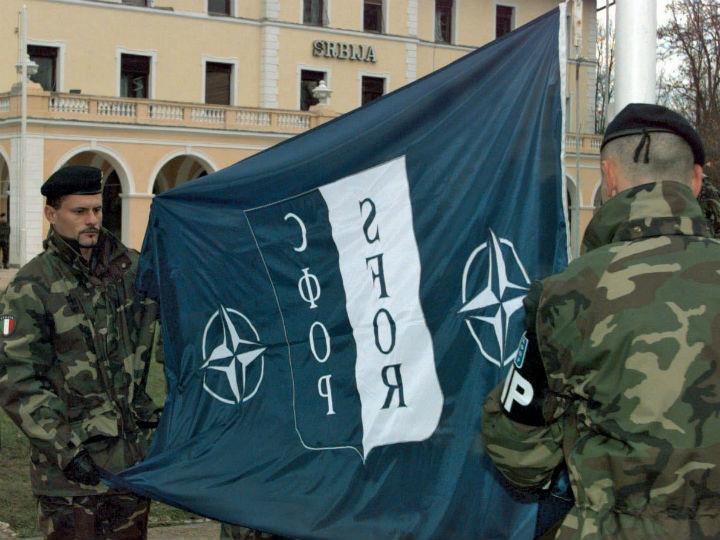by Zeljko Trkanjec and Zoran Radosavljevic
In recent European history, it is difficult to find a political experiment that has flopped as spectacularly and as silently as the Dayton Peace Accord.
Younger generations probably don’t even remember the agreement, hailed as a game-changer at the time, a triumph of diplomacy that ended four years of bloodshed in Bosnia, the worst carnage on European soil since World War Two.
It took three weeks of seclusion at the Wright-Patterson airbase in the wilderness of Ohio, three weeks of difficult, face-to-face negotiations to reach a deal, 25 years ago this Saturday (21 November).
And yet, it failed, undermined by its own internal complexity and unwilling local politicians. It failed so consistently that after a while, it stopped making headlines, and Europe just gave up and went about its business.
The agreement struck by the presidents of Bosnia-Herzegovina, Croatia, and Serbia, with the involvement of US, EU, UK, French, German and Russian diplomats, “preserved Bosnia as a single state made up of two parts, the Bosniak-Croat federation and the Bosnian Serb Republic, with Sarajevo remaining as the undivided capital city” [Britannica].
And what has the agreement achieved, other than stopping the war?
The revival of multi-ethnic tolerance? Not really.
Stable state institutions? No.
Stable economy? Nope.
Prospect of EU membership? Hardly.
Surely, it’s the fault of Bosnian politicians, their inability to roll up their sleeves and rebuild a common future? There is that, of course, but there is also so much more.
The General Framework Agreement for Peace in Bosnia and Herzegovina, is just that, a framework, with 11 articles and 11 annexes.
Over time, however, it became ‘untouchable’. The phrase “the word and spirit of Dayton” became a shield against any attempt to find innovative solutions that would allow BiH to move forward.
That unwieldy structure – one state, two entities (Federation of Bosniaks and Croats, and Republika Srpska), three constitutional nations (Croats, Bosniaks, Serbs) – is now the heart of the problem.
The West has gradually reduced its involvement in BiH, leaving behind just the ‘Office of the High Representative’ (OHR), an ad hoc international institution that oversees the implementation of Dayton.
The OHR is now a weak, almost impotent actor, freely criticised or ignored in the country and abroad. Russia and the Serbs are calling for its removal.
Unlike the EU, Russia has been increasingly engaged in Bosnia, mostly in support of Bosnian Serbs, hoping to preserve the frozen conflict, and thereby, its own influence in the Balkans.
Bosnia’s key problem is the continuing deep distrust between the leaders of its three nations, each with his own agenda.
In the Federation, Bosniaks are openly marginalising Croats, the smallest ethnic group. Elections were held two years ago and the Federation still does not have a new government.
Croats are therefore trying to carve out their own political space although a ‘third entity for Croats’ remains a taboo.
The result is that they are now siding with Serbs against Bosniaks, Serbs have preserved their ethnically cleansed territory and don’t care about anything else, while Bosniaks want centralisation of the country.
And each side is so deeply entrenched that any move in a positive direction seems impossible, even if the prospect of eventual EU membership is held out from time to time.
Some observers have said that the local elections held on Sunday, herald a new era. Alas, that is not the case. Although the main Bosniak party lost the capital Sarajevo, and the main Serb party lost its own capital, Banja Luka, the winners are not that different and do not really seem able, or willing, to bring about real change in the entire country.
The EU should have the biggest interest in stabilising BiH, but it never initiated a rethink of Dayton, to adapt it to new circumstances and facilitate change.
What it doesn’t seem to comprehend is that without firm, steady and strict pressure from the EU and the US, with Turkey and Russia aboard, there will be no progress in BiH. Only entropy will grow as the mess becomes bigger.
And, as laws of physics say, this entropy will either explode or implode, creating new headaches for Europe.
*first published in: www.euractiv.com




 By: N. Peter Kramer
By: N. Peter Kramer

